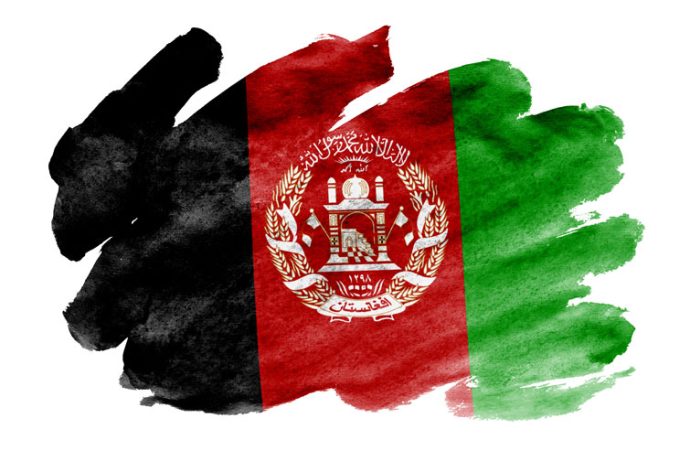Author Recent Posts Linta Jamil Latest posts by Linta Jamil (see all) Water Scarcity, Land Degradation, Climate Change: A Disaster for Pakistan’s Food Security – April 22, 2025 International Refugee law and Repatriation of Afghan Refugees – April 22, 2025 China’s Response to Trump’s Tariff War – April 22, 2025
Pakistan has important reasons to induce repatriation of refugees from its soil, International Refugee law however questions the way some of the repatriation efforts are conducted. This country has hosted 4 million Afghan refugees over these 4 decades. A fresh influx of 60,000 Afghans began through the porous border after the fall of Kabul. Repatriation was therefore initiated in October 2023. Pakistan has so far repatriated around 80,000 Afghan nationals.
Rising terrorism in the country is a major reason behind repatriation efforts. The initial decision encapsulated deporting any undocumented Afghan nationals from Pakistan back in 2023. This was the year when 14 out of the 24 suicide bombings were alleged to be conducted by Afghans. It is indeed no coincidence that these terror activities were prevalent in KP and Baluchistan, the two provinces harbouring around 70% refugees.
The straining of diplomatic ties with the Afghan regime and economic concerns are amongst other reasons behind these mass deportations from Pakistan. Islamabad has accused Afghan Taliban of providing a safe haven to TTP, a major terrorist threat to Pakistan. It claims that TTP are provided shelter and ammunition in this neighbouring country from where they launch attacks on Pakistani soil. Taliban regime of Kabul rejects this although they share similar ideologies to the TTP. Pakistan’s fragile economy could easily be crippled by the need to provide for 4 million immigrants hence the authorities took steps to ease this burden. This explains for why, unlike the initial decision to deport only the undocumented Afghans, currently all these nationals are to be deported from Pakistan by April 2025. The initial deadline to windup deportation efforts was March 31, which has now been extended a month.
Pakistan did not announce a formal plan of repatriation when it initially announced this decision almost two years ago. There was however a task force set in place to initiate repatriation. It is however now evident that repatriation will be done in three phases. In the first phase all the undocumented foreigners will be deported, thousands of whom have so far been deported. In the second phase Afghan citizen card (ACC) holders will be repatriated. In the final phase, those with proof of registration (POR) will be deported. These are the individuals who are third generation residents in Pakistan, many of whom have never been to Afghanistan. There are around 1469522 POR holders in the country.
In Punjab, 38 transit points have been established by the authorities for the smooth transit of individuals out of Pakistan. KP has 3 transit points while 2 in Sindh, 3 in Kashmir and 1 each in Baluchistan and the federal capital. Gilgit Baltistan also has a transit point for the repatriation of Afghan families. The ACC holders are kept in camps where there are provided for basic needs before their journey onwards into Afghanistan. These individuals had their residence cards issued by UNHCR and were till now allowed to remain in Pakistan except for twin cities.
The way repatriation is conducted has been questioned by both UN and the Human Rights Watch. Pakistan is not a signatory to 1951 Refugee Convention, nor its 1967 Protocol. This is the backbone to any international law protecting the rights of refugees in host countries. Pakistan is however bound by customary international law and UNHCR mandate. The mandate stipulates that the host country provides any necessary protection to refugees. Similarly, under IL principle of non-refoulment clearly prohibits repatriation if the refugees are at risk of persecution/torture from the country of origin.
UNHCR has objected to mass arrests and mass deportations by the authorities. Many of those repatriated were born and raised in Pakistan. They fear persecutions after being tagged as ‘Pakistanis’ in Afghanistan. These are the people who have their means of livelihood in Pakistan and can not imagine starting their lives from scratch. Humanitarian workers are also concerned about the treatment of women who will repatriate to a Taliban dominated Afghanistan. Many of the women had gained financial independence in Pakistan which is feared to be snatched in the non-secular Taliban regime. The essence of IL in this regard is that any repatriation should be voluntary, and the host state must ensure that the refugees do not face any persecution, food insecurity or discrimination in their country of origin.
Pakistan’s policy of repatriation has a sound reasoning. This year has so far seen 1600 deaths already associated with terrorism. Many instances of Afghan nationals behind such killings are also true. However, the rash manner of repatriation at a mass level stands questionable. Such deportations and repatriation are to be halted. This is to ensure proper collaborations with the Afghan government regarding the sheltering of those who will be repatriated. UNHCR also needs to be actively engaged to facilitate voluntary repatriation. International cooperation also needs to be garnered to help ease Pakistan’s refugee-hosting burden. This also needs to be borne in mind that with President Donald Trump cutting short aid for Pakistan, the country faces the need to repatriate Afghan nationals more than it ever did in the past.
- Water Scarcity, Land Degradation, Climate Change: A Disaster for Pakistan’s Food Security - April 22, 2025
- International Refugee law and Repatriation of Afghan Refugees - April 22, 2025
- China’s Response to Trump’s Tariff War - April 22, 2025





















Leave a Comment
Your email address will not be published. Required fields are marked with *